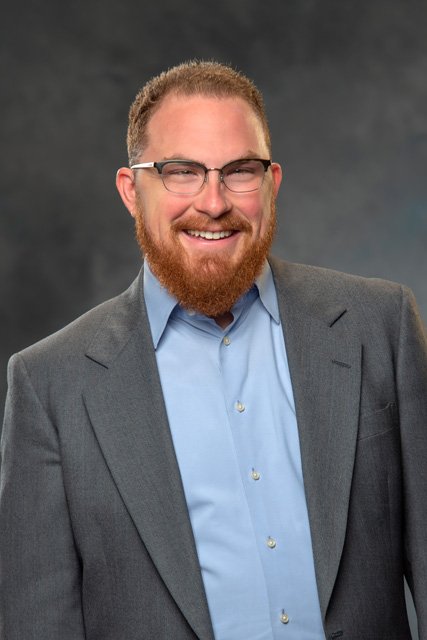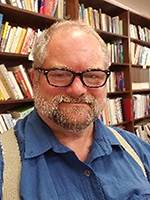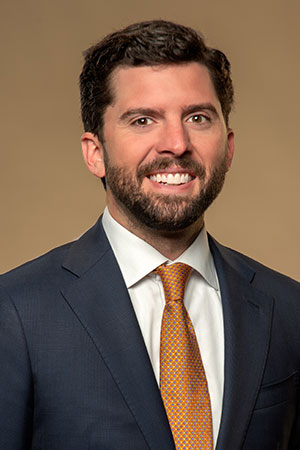By Jennifer Taylor
Casey Hyatt was off the clock, driving along a winding road west of Nashville, when his cellular phone sounded. The rural stretch is understood for its spotty cell service, however with a high ditch on one side and a large rock wall on the other, Hyatt pulled onto a gravel turnout and responded to thecall The voice on the other end he understood well. It was Clint, a just recently released patient now in addiction recovery for the 2nd time.
” He was in a deep, dark, desperate location where he was totally alone,” remembers Hyatt, the recovery care supporter planner and alumni intermediary at Cumberland Heights, a not-for-profit addiction treatment center in Tennessee. “And he connected.”

Sitting at the roadside, Hyatt spoke to Clint for 45 minutes, responding to a lot of what if-type questions It was that point of connection that triggered Hyatt to note: “It’s not about the responses you provide. It’s about the questions you ask,” a belief associated to the French Knowledge thinker Voltaire. The minute was poignant for Hyatt and for the guy having a hard time in recovery.
” I offered [him] that time, that day, to truly ask himself what was necessary and what he desired to do,” states Hyatt. “We have so little ground when you’re on the phone with somebody; all they have to do is hang up. So it is very important that we’re able to preserve that relationship in a manner in which reveals compassion and empathy.”
When the call ended, Clint returned to treatment–for what would be the last time. “He’s been sober since,” Hyatt states.
Recovery Through Connection
Clint’s story sticks out to Hyatt not even if it was a success, however since it highlights a crucial yet in some cases ignored element in addiction treatment and recovery: connection.
The science of addiction recovery is still in its infancy. Because regard, treatment professionals point to the groundbreaking research study of William White, an addiction and recovery author and retired research study expert for Illinois’s Chestnut Health Systems, and John Kelly, PhD, ABPP, the Elizabeth R. Spallin Teacher of Psychiatry in Addiction Medicine at Harvard Medical School and creator and director of the Recovery Research Study Institute at Massachusetts General Hospital.
Organized addiction recovery took shape in 1935, when Costs Wilson, attempting to preserve his own sobriety, established the 12-step fellowship Alcoholics Anonymous to help reward people with alcohol use disorder (AUD). Wilson’s program started by linking with others dealing with the very same difficulty. Ever since, the 12 actions have actually developed from the only recovery technique in America to the structure of recovery fromsubstance use and process disorders In reality, in current years recovery has actually become its own element of care, with residential treatment centers structure whole programs around recovery support and supplying those in recovery with tools, innovation and– most significantly– time.
” No matter how well you do in residential treatment, if you toss somebody back into a cesspool of an environment with no support, they are going to relapse.”
— Michael Dennis, Lighthouse Institute
Michael Dennis, a senior research study psychologist and director of the Lighthouse Institute, the research study arm of Chestnut Health Systems, has actually been continuing White’s work in addiction recovery research study According to Dennis, residential treatment is just as great as its community reentry.

” No matter how well you do in residential treatment, if you toss somebody back into a cesspool of an environment with no support, they are going to relapse,” Dennis states. On the other hand, if patients are reintegrated with support, in a dry or helpful living environment, they are extremely most likely to stayin recovery “It’s not brain surgery,” states Dennis.
Recovery support services are broken down in between continuing care, suggesting when people are released from residential treatment and guided straight into the next level of care; and connection of care, significance people return for booster sessions. In other cases, recovery broadens beyond a shift to recovery support, states Dennis. There are likewise intricacies to browse in transitioning back into real estate, work and the broader community, along with looking for alcohol- or substance- totally free celebrations, handling medication and avoiding of prison.
Some of Dennis’ newest research study includes brand-new methods to preserverecovery One continuous research study, in specific, is looking at producing “recovery management examinations,” which reward addiction as a persistent condition that needs illness management in time, comparable to how the medical field handles diabetes.
Peer Support in Recovery
About 5 years earlier, the management at Cumberland Heights released an approach called Recovery Care Supporters (RCA) to reinforce their patients’success in recovery The individual-to-patient idea has actually given that gotten traction at lots of other treatment centers throughout the nation, states Nicholas Hayes, PhD, Cumberland Heights’ primary science officer.
An RCA is a skilled individual on the recovery staff who is a point of connection for patients as they start to take in back into their living environments. Patients are matched with an RCA whom they fulfill in the early phasesof residential treatment After discharge, the RCA stays in touch with the individual at points over a 12-month duration, a service that is consisted of in Cumberland Heights’ cost of treatment.
” We have actually truly started to much better comprehend that behavioral health isn’t an intense experience. Development happens in time, not over night.”
— Nicholas Hayes, Cumberland Heights
This is a concrete example of how the respected work of White and Kelly on addiction and recovery has actually altered the landscape, states Hayes, with programs such as RCA that use human connection to handle recovery and to recover.

” What their research study recommends is that we have actually truly started to much better comprehend that behavioral health isn’t an intense experience,” Hayes states. “Development happens in time, not over night. We understand our patients have a long-lasting illness, and we require to much better support them over that early trajectory of discharge from our treatment programs so they have the very best chances of success.”
Hyatt, who has actually worked in treatment given that 2010, remembers that in his early days in the field he would frequently be pulled from his responsibilities as a staff service technician to provide support servicesfor patients He states the professionalization of peer support has actually been a game-changer, with states such as Tennessee offering accreditation for peer recovery professionals
“The individual who assisted me go to [my] very first conference was somebody who had actually lived experience and did whatever they perhaps might to help me desire what they had [in sobriety],” states Hyatt, who continues to construct out Cumberland’s RCA program, which has actually grown to 7 present staffers.
Innovation Tools Anyplace, Whenever
Other current video game changers in recovery have actually emerged on the innovation front. The introduction of telehealth in treatment and recovery had actually been gradually taking hold prior to the coronavirus pandemic, however sped up when communities entered into lockdown start in the spring of 2020.
Research Studies have actually revealed that technology-based SUD interventions by means of computer system or mobile phone apps havebenefits They’re quickly available anytime and anywhere, inexpensive, inspiring and interesting, though scientists state there are obstacles to execution. “In basic they have favorable impacts,” Dennis states. “[People] do much better since you’re putting a recovery coach in the individual’s pocket. The Majority Of people bring their mobile phones all over.”
” Perhaps [someone is] not going to get the phone and take a call, however they’re going to engage in innovation and discover peer support or recovery support material or videosonline Having options is essential for engagement.”
— Kim Albers, Hazelden Betty Ford Structure
Hazelden Betty Ford Structure, the trailblazing addiction treatment and recovery center with locations in 8 states, likewise provides gain access to to virtual care through a range of recovery programs and innovation tools.
Kim Albers, Hazelden’s director of recovery management, states its support programs tend to be 12 to 18 months long, advancing through various levels of care as patients are re-engaging with their housecommunities “It’s constantly individualized,” Albers states. “There’s not one course forward.”
Hazelden’s recovery programs for people and family members consist of training and tracking, fellowship conferences and alumni occasions. Innovation tools consist of a range of meditation apps, an comprehensive online book shop, gain access to to The Daily Promise (a complimentary online addiction community that provides support) and addiction recovery webinars.
A crucial understanding, states Albers, is that various people can be effective with various recovery tools. “Perhaps they’re not going to get the phone and take a call, however they’re going to engage in innovation and discover peer support or recovery support material or videos online,” she states. “Having options is essential for engagement.”
Recovery Support for the Long Term
While treatment providers like Hazelden and Cumberland Heights are focused on recovery support for 12 to 18 months after discharge, leaders in the field acknowledge that, according to research study, 5 years of recovery support is where people tend to reach complete remission. For Hayes, that’s the objective at Cumberland Heights. “We began [by] following patients for one year,” Hayes states. “Our dream is to be able to do that for 5.”
And the much better the support that’s provided, the much better the results. “We’re seeing that patients who are engaging regularly with the RCA are reporting more effective results as associated to recovery,” Hayes notes, “and that’s what it is about.” He states the RCA program has a 75% effective follow-up rate. That success, he keeps in mind, is constructed on the connection and community that has actually been developed over the course of treatment.
” Those minutes connected together in time with hundreds of guys– it develops something a lot more robust than any individual relationship. This is part of the life-saving, life-giving program that continues to motivate and continues to encourage.”
— Casey Hyatt, Cumberland Heights
For Hyatt, each connection made with a patient in recovery contributes to a more unified, effective community force. His discussion with Clint on the side of the road altered the trajectory of Clint’s life. Previously this month, Hyatt presented Clint in a recovery conference, where he got involved as a visitor speaker. That minute functioned as a beacon of hope, as Hyatt granted Clint a four-year sobriety medallion.
” Those minutes connected together in time with hundreds of guys– it develops something a lot more robust than any individual relationship,” Hyatt states. “This is part of the life-saving, life-giving program that continues to motivate and continues to encourage.”
Recovery Support Resources
- Google has actually produced Recuperate Together, a complimentary innovation platform for people in or looking forrecovery From the search field, users can discover online conferences near them by typing in their postal code, and can likewise access resources for treatment and recovery, information on support real estate, links for households and good friends, and more.
- For youth, an extremely suggested innovation platform is Your Voice Your Life, run by Boys Town.
Leading picture: Cumberland Heights
